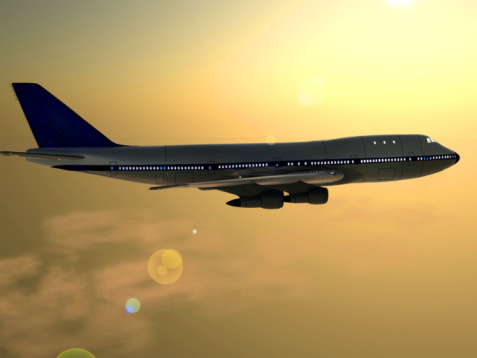
A Washington, D.C.-based research group, The International Council on Clean Transportation (ICCT), published on Wednesday a study that ranks 15 U.S.-based airlines on the fuel-efficiency of their operations in 2010. The research methodology took into account the fact that airplanes burn fuel to provide both mobility (moving passengers over a distance) and access (servicing multiple cities with multiple flights).
Based on the ICCT research, here are 2010’s top five airlines in fuel efficiency:
- Alaska Air Group Inc. (NYSE: ALK) — 1.11
- Spirit Airlines Inc. (NASDAQ: SAVE) — 1.09
- Hawaiian Holdings Inc. (NASDAQ: HA) — 1.09
- Continental Airlines — 1.07
- Southwest Airlines Co. (NYSE: LUV) — 1.06
A score of 1.0 reflects the industry average. United Airlines, now merged with Continental as United Continental Holdings Inc (NYSE: UAL), scored 1.0 in the ICCT rankings.
Here are the scores for the five least efficient carriers:
- Allegiant Travel Co. (NASDAQ: ALGT) — 0.88
- American Airlines — 0.89
- AirTran Airways — 0.94
- Delta Air Lines Co. (NYSE: DAL) — 0.96
- Sun Country Airlines — 0.97
Here are a few of the ICCT’s observations:
- Alaska, Spirit, and Hawaiian are “relatively small carriers serving geographically limited markets.”
- Continental was the most fuel efficient of the legacy (those established before deregulation).
- Many of the worst performers were or were subsequently involved in mergers.
- The most profitable airlines during the period 2009 to 2011, Allegiant , was the least efficient.
Globally aviation greenhouse gas emissions are expected to increase by 4% annually through 2050. If that estimate comes true, aviation will account for 15% of man-made CO2 emissions by that year.
Are You Ahead, or Behind on Retirement? (sponsor)
If you’re one of the over 4 Million Americans set to retire this year, you may want to pay attention.
Finding a financial advisor who puts your interest first can be the difference between a rich retirement and barely getting by, and today it’s easier than ever. SmartAsset’s free tool matches you with up to three fiduciary financial advisors that serve your area in minutes. Each advisor has been carefully vetted, and must act in your best interests. Start your search now.
Don’t waste another minute; get started right here and help your retirement dreams become a retirement reality.
Thank you for reading! Have some feedback for us?
Contact the 24/7 Wall St. editorial team.


